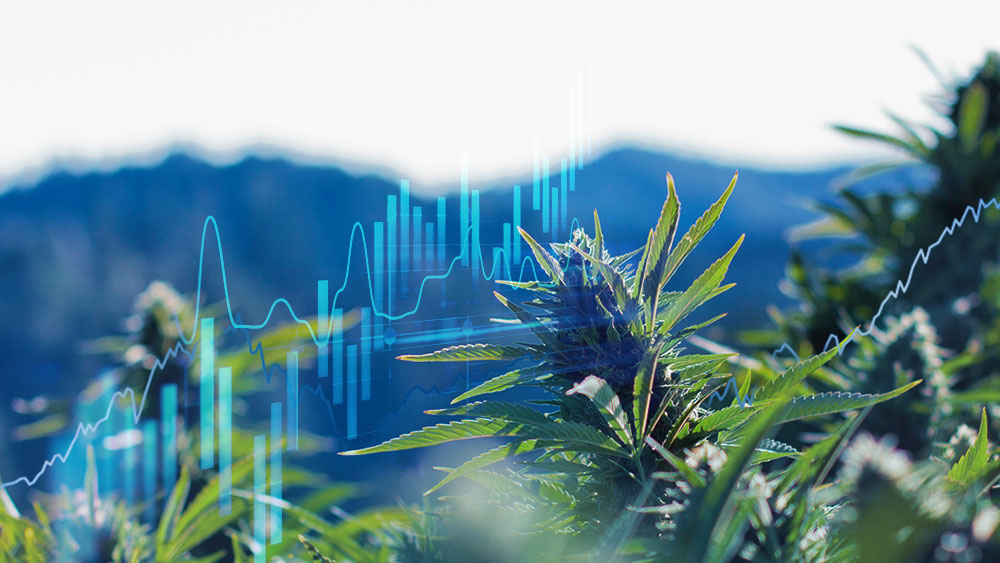When we talk about cannabis genetics, a lot of people think about the potency of the plant. But what about you? Do you have the right genes for smoking cannabis?
Cannabis genetics is something that’s been heavily worked and experimented on in the past three decades. It is very rare that we get to see something like herbal genetics being perfected in illegal greenhouses, and yet here we are.
The growers perfect their plants’ genetics by handpicking only the best, strongest and most potent phenotypes and cross them with their peers. That is how we got extremely potent strains such as OG Kush and many others.
Over the course of the past few years, we’ve seen the rise of CBD-potent strains, such as ACDC, Charlotte’s Web and the Harlequin. These strains grew in popularity as the cannabis market slowly started opening up to the public.
The strain-specific genetics really took off once medical marijuana became legal. It was of utmost importance to know what type of plants you’re growing, otherwise, your whole crop might go to waste.
Genetics are a two-way street
Whether a particular strain of weed will fit your habits and needs doesn’t solely depend on the genetics of that strain. It could have something to do with you as well.
According to John Lem, CEO of Lobo Genetics, if weed doesn’t usually hit you the same way it hits most other people, you maybe have genes that are poorly suited to absorbing and metabolizing cannabinoids.
“Looking into the science, we came to the conclusion that there is actually a genetic basis for someone’s reaction to THC,” said Lem.
Lem’s team looked into three specific genes: CYP2C9, AKT1, and COMT, and created tests that predict how a particular person will respond to a particular cannabis strain. His tests already found their way to several stores in Alberta, even though the wider cannabis and scientific communities have pointed out that further research is required to confirm the results.
Dr. Bernard Le Foll of the Centre for Addiction and Mental Health pointed out that there are many other factors in play, not just the users’ genetic setup.
“The type of environment, the type of previous drug exposure, the dose — that is all very important, possibly more important than genetics,” said Le Foll.
A lack of genetics in Canada
Since the legalization of recreational cannabis, Canada’s cannabis diversity hasn’t really grown in the same manner as the market size did.
Even though there are over 170 license holders now who qualify to become licensed producers, only two are licensed to sell seeds and a few more to sell whole plants.
That’s right. Only two licensed producers in all of Canada are allowed to legally sell you seeds so that you may grow cannabis at home on your own, and those are CannTrust and Tweed.
Another eight are licensed to sell whole plants, also known as clones. They are:
- Aurora Cannabis
- Canna Farms
- Delta 9 Bio-Tech
- Maricann
- Peace Naturals Project
- THC Biomed
- WeedMD
- Whistler Medical Marijuana
Canadians can buy seeds and plants from authorized provincial and territorial retailers, as well as various online platforms in Canada and abroad. This is highly recommended as bringing new genetics into one cultivar gene pool is hugely beneficial.
According to the MJBizDaily, provinces may soon allow nurseries to sell cannabis genetics, and so far only one company has a nursery license in Canada – InPlanta.
Health Canada reported that another 12 applications are being processed, as the seeds and clones supply is low. The process to open and run a cannabis nursery is relatively cheap and easy compared to that of becoming a licensed producer.
However, not very many have made use of that situation.
Ontario-based Natural MedCo is currently one of the very few companies selling cannabis clones. You can also buy them on the website CannabisNL, which is a division of the Newfoundland Labrador Liquor Corporation.
Hopefully the 12 companies which are in Health Canada’s pipework will all be licensed and significantly expand the offering of cannabis genetics on the market.






bob May 16, 2019 at 3:24 pm
You're reading the info wrong. There are dozens of companies authorized to sell seeds to consumers, both medical and non medical. Tweed and CannTrust are the only two who are currently *choosing* to sell them, not the only ones authorized.
Alex May 16, 2019 at 3:28 pm
Which part did I read wrong? I said that there are places where you can buy seeds. Those two are the only 2 LPs doing it. Clones can be bought from the other 8, or the 2 companies I named. Seeds are everywhere yeah, my comments were more focused towards clones. Just 10 companies selling clones in all of Canada is simply too few.
Anthony Floyd May 17, 2019 at 12:49 pm
https://www.canada.ca/en/health-canada/services/drugs-medication/cannabis/industry-licensees-applicants/licensed-cultivators-processors-sellers.html?fbclid=IwAR0yvLuN8aWb2pJbBvoK4txyIKXCFO4DHDQ702LRovlKv57T6AMn7w2QqZ0 Right here mate. Over 100 licenced to sell seeds and plants to provincially/territorially authorized distributors/retailers. Also, to my knowledge we aren't allowed to buy seeds from any websites from abroad. Where was your source on that information?
Alex May 17, 2019 at 12:57 pm
Right, and if you were to look down below, in the "Starting materials for personal or designated production" section, you'd see that only 2 have offered seeds, and another 8 offer plants. In that section it also says that you can buy from online platforms. As far as buying seeds abroad, I don't have a written source for that. But, I do personally know people that have bought seeds from websites in US and Netherlands. I'm not sure if it's completely legal, all I'm saying is that it can be done without too many hurdles as long as you're buying just a couple seeds. I'm definitely not recommending it though.
Anthony Floyd May 17, 2019 at 12:52 pm
The list you were looking at are the companies that sell starting material to Health Canada registered med growers.
clayton mccann May 17, 2019 at 4:38 pm
My concerns are not genetics, but rather what happens in production contexts, voluntarily, by Licensed Producers: 1. chemical "Pest Control Products" remain not tested for human health re: ingesting Cannabis "edibles," oils, and tinctures. 2. toxic constituents in fertilizers - heavy metals pose the gravest risk, e.g. mercury, lead, arsenic, cadmium, etc., present in commercial-grade ferts, but "other ingredients" could include any toxic sludge you can imagine, and some you can't! 3. radioactive cobalt isotope gamma irradiation of Cannabis products, rendering them "inert" and killing off terpenes, e.g. linolool, etc. and destroying "the entourage effect" for human health. Way more worrisome than genetics, mate!